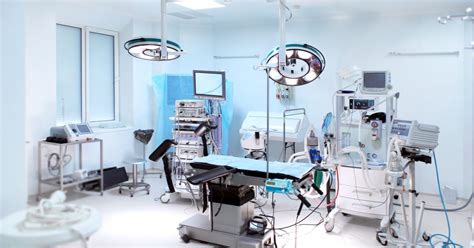Surgical technology and sterile processing are two distinct professions that play crucial roles in ensuring the safety and success of medical procedures. While both careers involve working behind the scenes to support healthcare teams, they have different responsibilities, requirements, and work environments. In this article, we'll delve into the differences between surgical techs and sterile processing techs to help you decide which career path aligns with your interests, skills, and goals.
The Role of Surgical Technologists
Surgical technologists, also known as operating room technicians, are allied health professionals who work closely with surgeons, anesthesiologists, and nurses to ensure the smooth execution of surgical procedures. Their primary responsibilities include:
- Preparing the operating room and equipment before surgery
- Maintaining a sterile environment and adhering to infection control protocols
- Assisting surgeons and other medical professionals during procedures
- Handling surgical instruments and equipment
- Maintaining patient safety and comfort during surgery
Surgical technologists typically work in hospitals, ambulatory surgical centers, or clinics, and may specialize in specific areas, such as cardiovascular, neurosurgery, or orthopedic surgery.
The Role of Sterile Processing Technicians
Sterile processing technicians, also known as central service technicians, are responsible for decontaminating, sterilizing, and preparing medical equipment and instruments for use in patient care. Their primary responsibilities include:
- Cleaning and decontaminating medical equipment and instruments
- Sterilizing equipment using various methods, such as autoclaving or dry heat sterilization
- Packaging and storing sterilized equipment
- Maintaining inventory of medical supplies and equipment
- Ensuring compliance with infection control protocols and regulations
Sterile processing technicians typically work in hospitals, clinics, or central service departments, and may work in sterile processing departments, operating rooms, or other areas where medical equipment is used.
Key Differences
While both surgical technologists and sterile processing technicians play critical roles in ensuring patient safety, there are significant differences between the two professions:
- Work Environment: Surgical technologists work directly in the operating room, whereas sterile processing technicians work behind the scenes in central service departments or sterile processing areas.
- Responsibilities: Surgical technologists focus on supporting surgical procedures and maintaining a sterile environment, whereas sterile processing technicians focus on decontaminating, sterilizing, and preparing medical equipment and instruments.
- Education and Training: Surgical technologists typically require an associate's degree or postsecondary certificate in surgical technology, while sterile processing technicians may require a certificate, diploma, or associate's degree in sterile processing technology.
- Certification: Both professions offer certification options, but surgical technologists can obtain certification through the National Board of Surgical Technology and Surgical Assisting (NBSTSA), while sterile processing technicians can obtain certification through the International Association of Healthcare Central Service Materiel Management (IAHCSMM).
Career Paths and Salary
Both surgical technologists and sterile processing technicians have opportunities for career advancement and professional growth. Here are some potential career paths and salary ranges:
- Surgical Technologists:
- Entry-level: $40,000 - $60,000 per year
- Experienced: $60,000 - $80,000 per year
- Leadership roles: $80,000 - $100,000 per year
- Sterile Processing Technicians:
- Entry-level: $30,000 - $50,000 per year
- Experienced: $50,000 - $70,000 per year
- Leadership roles: $70,000 - $90,000 per year
Conclusion
While both surgical technologists and sterile processing technicians play vital roles in ensuring patient safety and success, they have distinct responsibilities, work environments, and requirements. By understanding the differences between these two professions, you can make an informed decision about which career path aligns with your interests, skills, and goals.
Whether you're interested in working directly in the operating room or behind the scenes in sterile processing, both careers offer opportunities for professional growth, development, and satisfaction. By pursuing a career in surgical technology or sterile processing, you can make a meaningful contribution to the healthcare industry and improve patient outcomes.
Gallery of Sterile Processing Equipment






FAQs
What is the difference between a surgical technologist and a sterile processing technician?
+Surgical technologists work directly in the operating room to support surgical procedures, while sterile processing technicians work behind the scenes to decontaminate, sterilize, and prepare medical equipment and instruments.
What education and training are required for surgical technologists and sterile processing technicians?
+Surgical technologists typically require an associate's degree or postsecondary certificate in surgical technology, while sterile processing technicians may require a certificate, diploma, or associate's degree in sterile processing technology.
What are the salary ranges for surgical technologists and sterile processing technicians?
+Surgical technologists can earn between $40,000 to $100,000 per year, while sterile processing technicians can earn between $30,000 to $90,000 per year.
